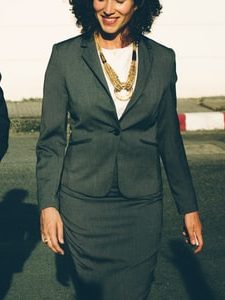
Corporate Social Responsibility
Social responsibility begins within the organization and with technology and current cultural norms, a company’s social presence has been more impactful than in the past. Thanks to the generations of women before us, there has been more change in a woman’s role in society, but Gen Z wants to see more. Words are not enough. Corporate social responsibility is a model that businesses follow to be held socially accountable, and Gen Z has made it very clear with their heavy social media presence that if you do not practice what you preach you, as the business, are done. It takes many forms, but the primary purpose holds true. And in current events, gender inequality in the workplace has gained more traction because of Gen Z’s persistence.

Gender Inequality
The standard definition of gender inequality is the social process by which men and women are not treated as equals. Despite the diverse state our world is currently in, gender inequality is still an ongoing issue in the workplace and there is more to be done. To illustrate this current inequality, Jean Grow and Shiyu Yang in Generation-Z Enters the Advertising Workplace: Expectations Through a Gendered Lens, explain that “women say that their gender costs them promotions. Gender also costs women more as they become mothers, while men are financially rewarded for fatherhood” (9). Because of this traditional way of doing and looking at things, women struggle to make a mark large enough for permanent change and it is not because they are weak. It is because of the male-dominated workforce. Just in the advertising industry alone, Grow and Yang state, “In the United States, women hold 26.1% of the total creative positions across the past 5 years; in creative management, they hold 17.5% of the positions” (10). It is an uneven field that women work with to have some validity in their role. Even if the generation in the field right now is unable to fully make this change, Gen Z will ensure its success when they step in.
Gen Z’s Forseeing Impact
When Gen Z enters the workforce, more change will ensue. Grow and Yang says that, “they are passionate about social change and crave a sense of purpose… [They are] the most diverse generation in U.S. history: fifty-five percent are Caucasian, 24% are Hispanic, 14% are African American, and 4% are Asian” (8). Gen Z was built on diversity, acceptance, and equality. They are active in other social injustices like sexual harassment, women’s choice, gender identity, immigration laws, and environmental disasters, and it does not stop there. Grow and Yang built a survey analyzing Gen Z’s expectations and “when it comes to leadership, Gen Z respondents are looking for ‘fairness, respect, leads by example, focused on CSR’” (13). Not only do they themselves want to practice social responsibility but they want their leaders to do so as well. They want to enter a workforce that acts on social injustice and strives for change both in and out of the workplace.
Making a Difference
Being socially responsible in society is a rewarding feeling for the company and the workers because it is a stance on the company’s beliefs and the voices of the people within. It illustrates the values a company believes in and it brings awareness to the problems. It also inspires young adults like Gen Z to talk about things that matter. We may still be facing gender inequality right now, but Gen Z is a very promising generation that will initiate change in the workplace if has not been done already.

Sources:
Grow, Jean M., and Shiyu Yang. “Generation-Z Enters the Advertising Workplace: Expectations Through a Gendered Lens.” Journal of Advertising Education, vol. 22, no. 1, May 2018, pp. 7–22, doi:10.1177/1098048218768595.
Kaplan, Elaine Bell. “The Millennial/Gen Z Leftists Are Emerging: Are Sociologists Ready for Them?” Sociological Perspectives, vol. 63, no. 3, SAGE Publications, 2020, pp. 408–27, doi:10.1177/0731121420915868.
Williams, Christine L., and Kirsten. Dellinger. Gender and Sexuality in the Workplace. Emerald, 2010.
